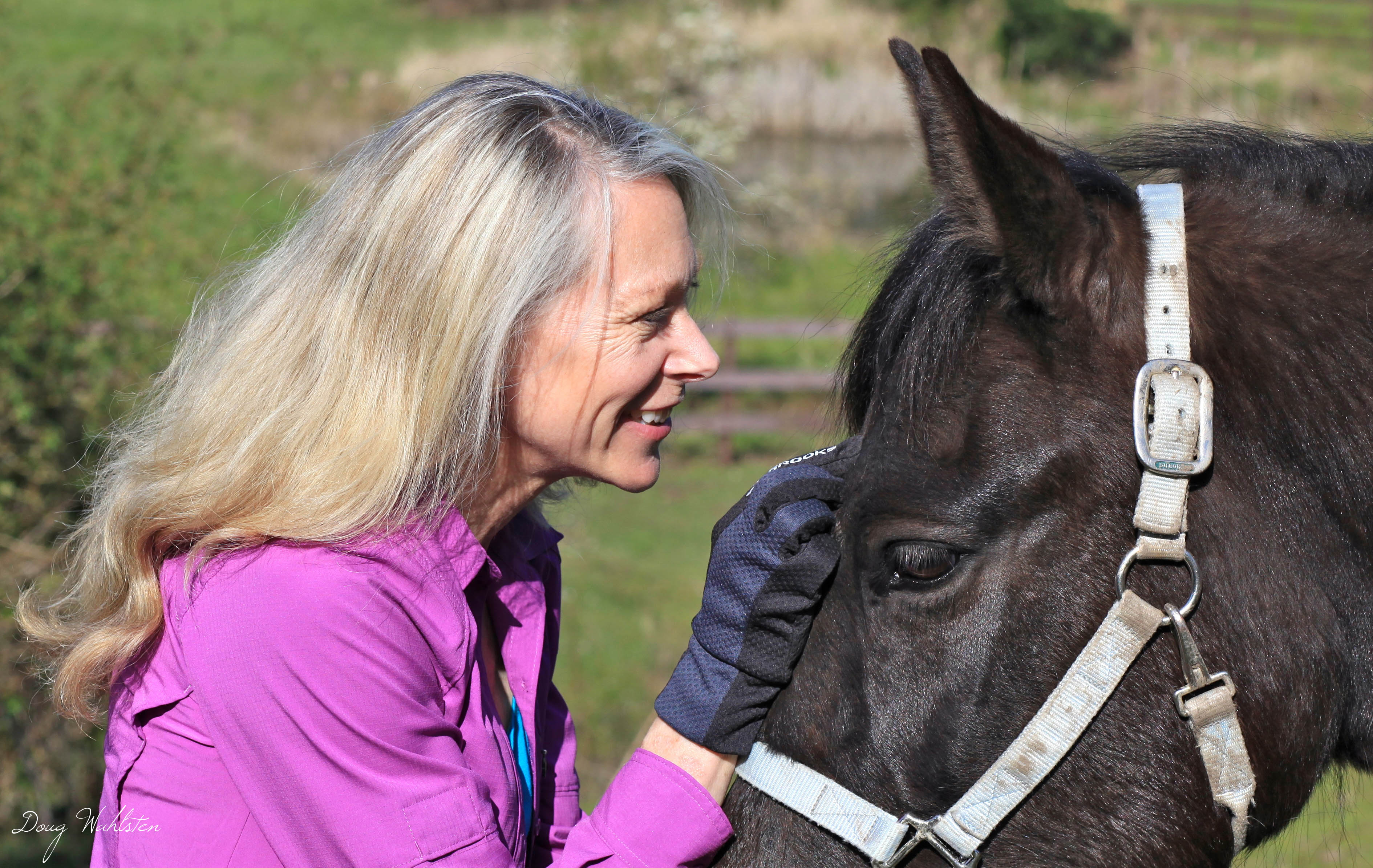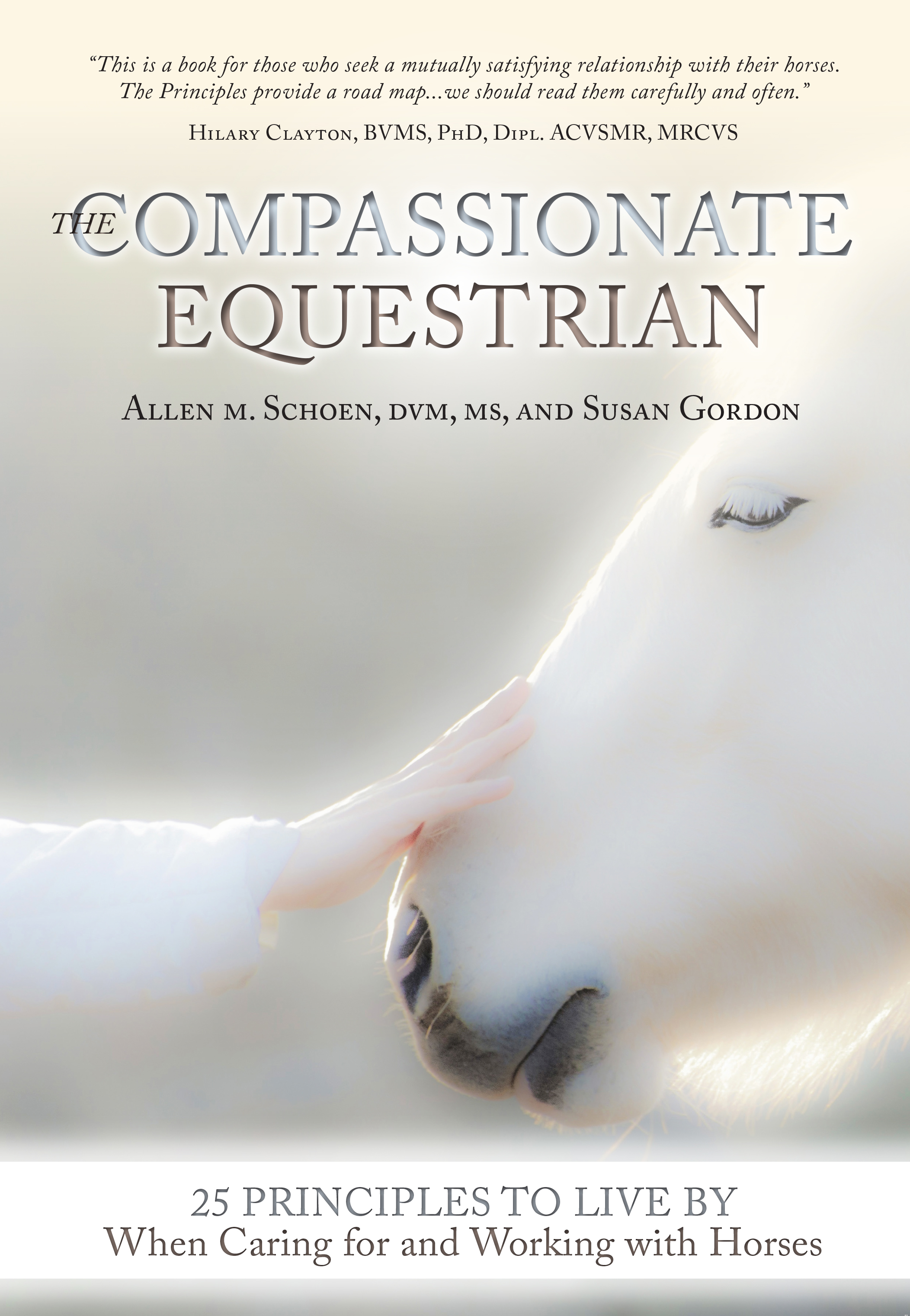This excerpt from The Compassionate Equestrian by Dr. Allen Schoen and Susan Gordon is reprinted with permission from Trafalgar Square Books (www.horseandriderbooks.com).
In this excerpt from “The Compassionate Equestrian”, former hunter-jumper trainer Susan Gordon explains how to keep your horse’s home a peaceful and healthy one.
When I first visit a barn, farm, or horse property, I do a visual and sensory scan of the horses, people, and facility, and immediately take note of how I feel upon arrival. After meeting Dr. Allen Schoen and developing the 25 Principles of Compassionate Equitation together, I realized he and I do exactly the same thing—we employ a technique that allows us to pick up the overall energy in the barn and surrounding area. Beyond basic observations noting cleanliness and that horses are in good flesh and health, we want to feel welcomed and absorbed in calm professionalism and order. We can usually determine fairly quickly whether or not a barn or showground is a place we would like to spend time.
There are some barns that feel like cathedrals, instilling a sense of awe. A great barn brings to mind the most wonderful aspects of our encounters with horses. This is what we refer to as a state of grace. Whether you have one horse in your backyard or a barn full of fancy show horses and boarders, no matter how simple or elaborate, you can make your horse’s home a place of beauty. A beautiful place makes you want to linger and relax.

Photo by Doug Wahlsten.
A large part of creating a healthy environment for your horses is to make it a quiet and peaceful one. It supports the parasympathetic response—the branch of the autonomic nervous system (ANS) responsible for the body’s ability to recuperate and recover after stress—in people and animals. Everyone stays calmer and the atmosphere of the barn remains healthier.
To this effect, everything matters, and everything you turn your mind to can be affected in a positive way. When your barn is a commercial facility and you are the manager, your mindfulness is especially important to all the horses and humans who enter. You set the tone for the day-to-day operations and help instill a high level of trust, confidence, and ultimately, performance, from the horses and riders who enjoy their time in a compassionate environment. Kind words and a peaceful demeanor toward staff, management, and other horse owners positively affects the energy of your establishment. Of course there will always be tense moments when associating with other individuals and when handling your own horses and those that belong to others. It is human nature. When conflicts and clashing personalities can be handled diplomatically, most problems can be quelled and mediated before reaching crisis level. Encouraging acceptance of the Principles of Compassionate Equitation by everyone who boards, trains, rides, and visits a stable is a big step to achieving a business style that brings out the best in all participants. The overall environment is more inviting if management and staff are prosocial, highly conscious, stable, and resilient.
Differences of opinions will always be part of human interaction; those differences can become a catalyst for both opening and closing of doors in regards to general social reaction and friendship. At an equestrian facility the common denominator is horses. Sometimes other factors bring together like-minded riders—for example, those hoping to achieve high standards within a single discipline, such as dressage. With a mixed-use facility that involves various breeds and training methods, the differing opinions and styles may cause higher or more constant tension than a single-discipline barn, especially if riding space is limited. At least that has been my own experience and observation. In these scenarios a good way to encourage compassion is to remember to see everyone, every horse, and every discipline as a learning opportunity.
Because of our human tendency to want to be accepted by and become part of a community, we can be highly influenced by those around us. This can mean finding ourselves feeling pressured or coerced to conduct ourselves in a certain way. It is important to recognize and appreciate who you truly are and to be able to identify the “self.” Practice setting your personal boundaries both in and out of the barn. If something does not feel right to you, or you think it may not be best for your horse, make your decisions from clear thinking, not emotions. Ask yourself if the barn, trainer, or situation is really the right one for you. Choose to be compassionate to yourself first, so you can be honest in your compassion for others.

Pick up your copy of The Compassionate Equestrian from Trafalgar Square Books HERE!
